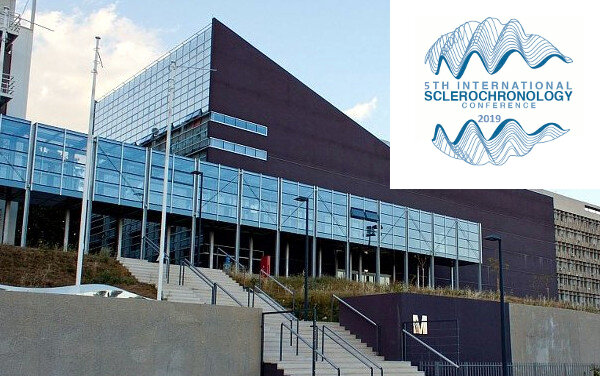NEWS
RARE EARTH ONLINE EXHIBITION
Rare Earth is an online exhibition featuring the collaborative work of a team of scientists and two Cornish artists, investigating climate and environmental change in the Antarctic. This collaboration has explored worlds under the microscope, on the surface of the ice, in the ocean and on the ocean floor. This exhibition draws attention to the effects of climate change on the Antarctic environment and in turn, the impact these changes have on the planet as a whole.
Exeter Sclerochronology Group to lead new six-year European Research Council Synergy €11.8 million SEACHANGE Project. Starting in October 2020,
SEACHANGE brings together four different research teams who will combine their skills and expertise in a powerful new synergetic alliance to unlock the richness of oceanic history. They include York (archaeology, chemistry), Exeter (sclerochronology, sedimentology, carbonate chemistry, paleoecology, historical ecology, ecosystem modelling and conservation biology), Mainz (isotope analysis) and Copenhagen (environmental DNA and ancient DNA). Collectively, we will develop time series of ocean ecosystem change of unparalleled detail from five very different parts of the planet, setting new baselines for understanding environmental change in the sea. We will piece together changes across major human cultural transitions spanning hundreds to thousands of years, including Mesolithic to Neolithic in Denmark, pristine to inhabited in Iceland following Viking settlement in 874 AD, Medieval to industrial revolution in the North Sea, hunter-gatherer to colonial in eastern Australia, and pristine to industrial in Antarctica. We will gather samples from archaeological middens, by piston coring of marine sediments and will date remains using traditional archaeological methods and exceptionally precise sclerochronology of the shells of long-lived molluscs. In developing detailed, dated time-series of ocean ecosystem change, we expect to be able to detect the earliest signs of human influence on the sea. And by understanding how the seas of today are different from the past, we will be able to better manage them for the future.
James Scourse is the corresponding Principal Investigator and Paul Butler will be Project Manager and a Senior Research Fellow working on the project. David Reynolds will be joining the SEACHANGE group as a senior researcher in October 2020 from his current position in the Laboratory for Tree-Ring Research at the University of Arizona. Other senior colleagues working on SEACHANGE include Principal Investigators Callum Roberts, who will be joining the University of Exeter (Cornwall Campus) in July 2020, Bernd Schöne at the University of Mainz in Germany, and Kristine Bohmann at the University of Copenhagen in Denmark. The SEACHANGE team in York includes Nicky Milner, Oliver Craig, Geoff Bailey and Kirsty Penkman. Other colleagues in the University of Exeter include Ruth Thurstan, Paul Halloran and Sev Kender.
See Shells & Climate Change
A 1000 piece ceramic installation showing the marine climate change of the last millennium
Jake Boex, a Ceramic Artist based in Porthleven, combined the research findings of the sclerochronology team with his ceramic works to create a visual display of ocean sea temperature change over the last 1000 years.
5th International Sclerochronology Conference 2019
The last ISC (International Sclerochronology Conference) was held in Split, Croatia, in June 2019. The Exeter group were there, with colleagues from the ARAMACC project and ex-colleagues from around the world. The next ISC will be held in Tokyo, Japan





